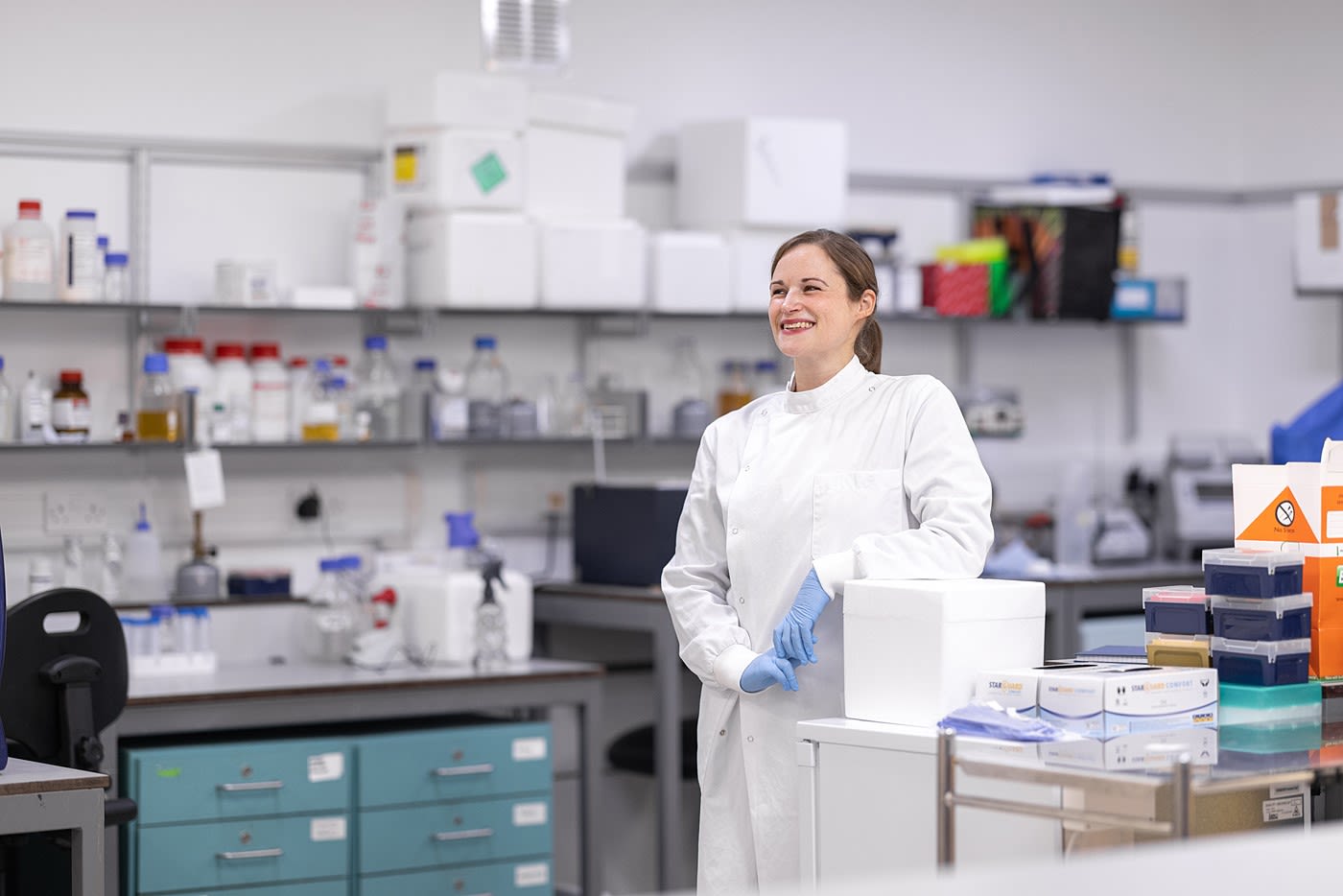Alumna of the Year

Viki read Natural Sciences at Clare, specialising in immunology and virology. She stayed in Cambridge for her PhD on immune cells in human pregnancy which she undertook in the Department of Pathology. During her PhD Viki married another Clare student whom she had met while working on the College’s student newspaper, and they moved to London where Viki took a job as a postdoctoral researcher at Imperial College.
Viki later returned to Imperial as a lecturer in reproductive immunology and her lab now focuses on how the uterine immune system is involved in the physiological processes of pregnancy. During the pandemic Viki was involved in collating and communicating accurate information on the effects of COVID-19 infection and vaccination on fertility, pregnancy and breastfeeding, and in critical research on how COVID-19 vaccination affects the menstrual cycle. She was recently awarded the President’s medal by Imperial College for her outreach work in relation to COVID-19 vaccination.
When accepting the Alumna of the Year award at Halfway Hall last February, Viki recounted her story…
“When I arrived at Clare in 2004 I got interested in simple organisms – viruses – and I became intrigued by a particular kind of immune cell called a natural killer or NK cell that’s specially adapted to recognise and kill virally infected cells. My lecturer at the time, Ashley Moffett, mentioned in passing, ‘Well, you know the place in the human body where we find the most NK cells is the uterus, where they have a role in recognising the placenta and helping it to implant.’ This train of thought ultimately led me into my PhD, trying to better understand uterine NK cells and how human pregnancy more generally works.
This is a fascinating area of research but not one that’s particularly well-funded. In 2019, only 2% of medical research funding in the UK went to pregnancy, childbirth and reproductive health – even though one-third of women that year said they had, at some point in their life, had a pregnancy or gynaecological problem. This funding gap impacts reproductive health specifically; but when we forget about female reproductive health, sometimes that can have unexpected impacts on other areas of healthcare.
Then the pandemic struck and, naturally, many immunologists pivoted to COVID-19 research; but a change in direction wasn’t something that I felt my lab could deliver. I would sit this one out. After all, what use is a reproductive immunologist in a pandemic?
Some use, it turned out, because sometimes in severe infection we have to deliver a baby early to save the mother’s life; so COVID-19 infection in pregnancy is associated with an increased risk of preterm birth. Also becoming apparent over the course of that year was the fact that mRNA COVID-19 vaccines are safe and effective in the general population; but what we didn’t know was if the mRNA COVID-19 vaccines were safe and effective in pregnancy. Pregnant participants had been excluded from the clinical trials; but these were large trials and accidents happen so, over the course of the trials for the three vaccines that were ultimately approved in the UK, 57 people became pregnant unintentionally – with outcomes that looked very similar in the vaccinated and the control groups and that looked broadly speaking, normal.
In February 2021 the first data was published from 4,000 people who had chosen to become vaccinated while they were pregnant in the first couple of months of the rollout, and for whom pregnancy outcomes looked normal.
At this time in the UK we weren’t offering the COVID-19 vaccine in pregnancy; and when we later did, in April of 2021, the government produced no official guidance. Information about the safety and effectiveness of vaccines was out there, but most people had no way of finding it and so they couldn’t make an informed decision.
This was an information gap that urgently needed filling, and so I started compiling the evidence on COVID-19 vaccination in pregnancy and communicating it – first on social media but later in traditional print and broadcast media, and later still talking to the branches of government that make these decisions to request formal national guidance.
When we had evidence from hundreds of thousands of people vaccinated against COVID-19 in pregnancy showing no increased
risk of pregnancy problems and indeed a decreased risk of COVID-19 stillbirth, pregnancy was made a priority condition for vaccination.
People have traditionally been wary of testing medicines in pregnancy and sometimes that has extended to excluding anyone from medical testing who can possibly become pregnant – and that effectively excludes all reproductive age females. Many people take life-saving and life-enhancing medications, and when they become pregnant, often their first question is, ‘Is it safe for me to continue taking this because of a lack of testing of medicines in pregnancy?’ Too often our answer to them is: we don’t know.
We all benefit when everyone is included in medical research – not just those who are historically excluded – and we all have a role to play in making science and society more equal."
